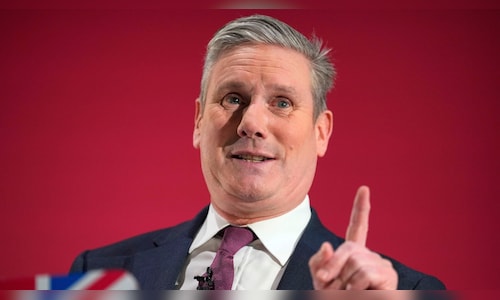Keir Starmer’s first 100 days as British Prime Minister have not been smooth sailing. Despite winning a resounding general election victory, Labour’s first months in power have been marked by missteps, infighting and policy missteps that have raised concerns about the direction of the government and its ability to deliver on its promises.
One of the most damaging problems the Labor administration has faced has been the consequences of ‘freebiegate’, a scandal that saw Keir Starmer and several senior ministers are criticized for receiving gifts, including expensive suits and glasses, together valued at £32,000. Public reaction was swift, with critics questioning the integrity of a party that positioned itself as a champion of the working class while its leaders accepted such generous benefits.
The optics of this scandal were made worse by Labour’s controversial decision to cut winter fuel payments for 10 million pensioners, a move that sparked anger and disbelief among party supporters and the general public alike. These two problems, compounded by persistent dissatisfaction with policy ambiguity, generated an atmosphere of uncertainty within the government and skepticism among voters.
The departure of Sue Gray
Faced with growing criticism and loss of confidence within his own ranks, Starmer decided to reform his administration, in particular by replacing his chief of staff, Sue Gray. Gray, who had been brought in to help Labor transition into government after the election victory, became a lightning rod for discontent. Internal reports suggested that his management style created obstacles in staffing and policy decisions, further complicating an already chaotic start. His £170,000 salary also attracted attention within the party.
In a bid to regain control, Starmer replaced Gray with Morgan McSweeney, an old ally who had played a key role in Labour’s electoral success. The reorganization also included the addition of two deputy chiefs of staff, Vidhya Alakeson and Jill Cuthbertson, as well as the appointment of James Lyons, a former TikTok communications executive, to lead a revamped media relations team.
This reorganization signaled Starmer’s intention to restore order and reorient his administration. However, the underlying question remains: will these changes be enough to address the deeper problems within the functioning of the Labor Party and regain public trust?
A light political agenda and economic concerns
One of the most persistent criticisms of Starmer’s government during its first 100 days has been the lack of concrete policy details. Despite the Labor government’s promises of national renewal and economic growth, specific details remain scarce. This has left many wondering whether the administration has a coherent strategy to address the country’s economic challenges.
READ ALSO | UK economic growth revised down, dealing blow to Keir Starmer
The upcoming autumn budget, due on October 30, is expected to be a critical moment for the Labor government. Finance Minister Rachel Reeves has promised a spending plan that will prioritize investment and growth, but there are already signs of possible backtracking on key promises. Reeves has hinted he will soften Labour’s stance on tax rises for private equity bosses and could reconsider plans to scrap the UK’s controversial non-domination status.
Reeves and Starmer have also warned of “difficult decisions” ahead as they try to manage a £22bn deficit in the public finances, reportedly inherited from the previous Conservative government.
Public sentiment and vision of the Labor Party
Public perception of the Labor Party’s initial performance has been lukewarm at best. The party, which campaigned on promises of renewal and a new start for Britain, has struggled to maintain a consistent narrative amid controversies and policy shifts. Many Labor supporters have expressed disappointment at the government’s decisions to maintain the two-child limit on benefits, remove the cap on welfare bills and make cuts to key welfare payments.
Critics have also pointed out the lack of clear ideological direction. While previous leaders of the Labor Party, such as Tony Blair and Clement Attlee, were known for promoting different political philosophies, Starmer’s leadership has been characterized by a more managerial approach, which some argue lacks the visionary component necessary to inspire and galvanize the support.
However, there are signs that the party is beginning to articulate a more progressive agenda. Starmer’s speeches at the Labor Party conference emphasized the need for investment-led growth and the importance of promoting national well-being. Finance Minister Reeves has echoed this sentiment and has advocated for public investment in areas such as carbon capture technology and infrastructure, with a £22bn, 25-year commitment to green energy projects. .
With the upcoming budget expected to be a watershed moment, the government now faces a critical test.
Disclaimer:
The information contained in this post is for general information purposes only. We make no representations or warranties of any kind, express or implied, about the completeness, accuracy, reliability, suitability or availability with respect to the website or the information, products, services, or related graphics contained on the post for any purpose.
We respect the intellectual property rights of content creators. If you are the owner of any material featured on our website and have concerns about its use, please contact us. We are committed to addressing any copyright issues promptly and will remove any material within 2 days of receiving a request from the rightful owner.

